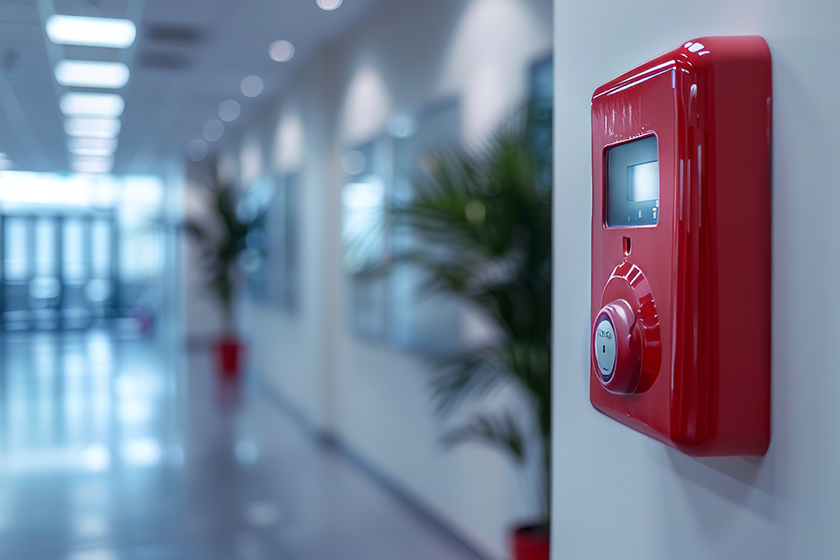When Are Fire Alarm Systems Required? Understanding The Regulations

In every building, a fire alarm system could be the difference between life and death in an emergency. However, not all buildings need the same type of fire alarm system. The requirements depend on many factors, such as the size of the building, the number of people it houses, and its purpose.
As fires are unpredictable, regulations exist to help safeguard occupants and property. Understanding when fire alarm systems are required can help business owners, property managers, and construction professionals avoid mistakes that might lead to penalties or safety risks.
The Role of Fire Alarm Systems in Building Safety
Fire alarm systems serve multiple functions. They detect the earliest signs of fire, alert building occupants, and notify emergency services. They can also manage risks by controlling ventilation systems, closing doors, or activating sprinkler systems.
These systems are required by law for buildings that meet specific criteria. Regulations for fire alarms are meant to protect both lives and property. Buildings of varying sizes and uses have different requirements.
Building Code Standards and Regulations
The National Fire Protection Association (NFPA) plays a major role in regulating fire alarm systems in the U.S. Specifically, NFPA 72 provides the standards for the installation, maintenance, and testing of fire alarm systems.
Local fire codes and safety regulations are built around these standards, often with additional provisions depending on the region. Building owners must understand the rules in their area to assure compliance.
It is important to note that fire alarm requirements differ depending on the type of building. Local codes may mandate stricter standards for hospitals or schools, compared to less complex commercial structures.
Compliance with fire safety regulations is necessary to avoid fines, legal consequences, and safety hazards.
Types of Buildings That Require Fire Alarm Systems
Fire alarm systems are required in a variety of building types. These can include residential, commercial, industrial, healthcare, and educational buildings.
Below is an overview of when fire alarms are typically mandated for each of these building types.
- Commercial Buildings
All commercial buildings must have fire alarm systems if they meet certain conditions. Offices, retail spaces, and warehouses are examples of commercial buildings that may require fire alarms.
According to NFPA regulations, fire alarms are required in commercial buildings when the structure exceeds a specific number of occupants, typically more than 100 people.
For larger buildings with multiple floors, fire alarm systems must be installed to alert people to evacuate in case of an emergency.
- Healthcare Facilities
Healthcare facilities, such as hospitals and nursing homes, have some of the most stringent fire alarm requirements. These buildings need fire alarm systems to make sure of quick emergency responses due to the vulnerable nature of their occupants.
According to NFPA 101, healthcare buildings must have fire alarms that alert the building’s occupants, staff, and emergency services at the earliest possible moment.
Hospitals, especially, require systems that are capable of immediate notification to reduce risk to patients who may be unable to evacuate quickly on their own.
- Educational Institutions
Schools and educational buildings must also follow specific fire alarm requirements. For instance, fire alarms must be installed in all educational buildings with an occupancy load exceeding 100 people.
Fire alarms must notify everyone within the building, with additional provisions to cater to those who are hearing-impaired. Educational institutions may need to install advanced communication systems that use both audible alarms and voice announcements.
- Industrial and Manufacturing Facilities
Industrial buildings, such as factories and warehouses, are subject to fire alarm requirements if they meet certain conditions, such as occupancy size or the presence of hazardous materials.
In facilities that handle chemicals or other dangerous substances, fire alarms should be installed and monitored continuously.
- Residential Buildings and High-Rise Apartments
Residential buildings, including apartment complexes and high-rise buildings, are also required to install fire alarm systems according to local fire codes. Smoke detectors are mandatory in every sleeping area, hallway, and on every floor of the building. In high-rise buildings, voice communication systems may be necessary to provide emergency instructions to residents.
- Mercantile Buildings and Retail Stores
Mercantile buildings, such as retail stores and shopping centers, also need fire alarm systems under certain conditions. These buildings are required to install fire alarm systems if they have more than 100 occupants or if they exceed certain square footage thresholds, such as 30,000 square feet.
Larger stores or malls may require a more sophisticated fire alarm system with voice communication.
Fire Alarm System Testing and Inspections
Once installed, fire alarm systems must be regularly tested and maintained to comply with safety codes. NFPA 72 outlines the need for fire alarm systems to undergo periodic inspections and testing.
Some inspections, such as those conducted by a fire marshal, should occur annually. Meanwhile, building managers or owners should conduct monthly checks to identify any issues.
Failure to keep up with maintenance could result in system failure during a fire emergency, which could have devastating consequences. Regular inspection also helps avoid penalties for non-compliance with local fire codes.
When is a Fire Alarm System Not Required?
Although fire alarm systems are required in many buildings, there are exceptions. Some small residential buildings, such as single-family homes or small duplexes, do not require fire alarms under NFPA codes. However, it is always a good idea to install smoke detectors to protect family members and property.
In certain industrial settings where the risks are minimal or the building size is very small, fire alarm systems may not be required. However, most industrial facilities should still install basic fire detection systems to reduce risks associated with fire hazards.
Understanding the Requirements for Your Building
As you can see, the question of when fire alarm systems are required depends on several factors. Building size, occupancy, use, and local codes all come into play. If you are unsure about the requirements for your building, working with a fire safety professional is the best way to avoid penalties and protect your property.
Fire Safety Alarms specializes in understanding the regulations and can guide you through the entire process. From installation to ongoing inspections and preventative maintenance, we help make sure that your fire alarm system is up to code and functioning optimally.
